
Gjirokaster Region: The Stone City of Timeless Charm
Nestled in the southern part of Albania, the Gjirokaster Region is a captivating destination where history, culture, and natural beauty intertwine. Known as the 'City of Stone,' Gjirokaster is renowned for its well-preserved Ottoman architecture, cobblestone streets, and steep, stone-roofed houses that give the city its unique character. The entire city is a UNESCO World Heritage site, offering visitors a glimpse into centuries of Albanian heritage. A visit to the Gjirokaster Castle is a must. Perched high above the city, this fortress offers panoramic views of the Drino Valley and serves as a historical museum displaying weaponry and artifacts from various epochs. The castle also hosts the National Folk Festival, a vibrant celebration of Albanian music and dance, which attracts performers and spectators from all over the country. Beyond the city, the Gjirokaster Region boasts stunning natural landscapes. The Blue Eye Spring, a mesmerizing natural phenomenon, features crystal-clear waters that bubble up from the depths, creating a striking blue hue. The nearby villages, such as Libohove and Antigonea, offer further exploration opportunities, each with its own historical and cultural treasures. Hiking trails, local markets, and traditional Albanian cuisine add to the charm of this enchanting region.
Local tips in Gjirokaster Region
- Wear comfortable walking shoes for exploring the cobblestone streets and steep paths.
- Visit the Gjirokaster Castle early in the morning to avoid crowds and enjoy cooler temperatures.
- Don't miss trying local specialties like qifqi (fried rice balls) and oshaf (fig pudding).
- Carry cash, as many local vendors and smaller establishments may not accept credit cards.
- Plan a day trip to the Blue Eye Spring for a refreshing experience in nature.
- Check the schedule for the National Folk Festival if you are visiting in May for a unique cultural experience.
Gjirokaster Region: The Stone City of Timeless Charm
Nestled in the southern part of Albania, the Gjirokaster Region is a captivating destination where history, culture, and natural beauty intertwine. Known as the 'City of Stone,' Gjirokaster is renowned for its well-preserved Ottoman architecture, cobblestone streets, and steep, stone-roofed houses that give the city its unique character. The entire city is a UNESCO World Heritage site, offering visitors a glimpse into centuries of Albanian heritage. A visit to the Gjirokaster Castle is a must. Perched high above the city, this fortress offers panoramic views of the Drino Valley and serves as a historical museum displaying weaponry and artifacts from various epochs. The castle also hosts the National Folk Festival, a vibrant celebration of Albanian music and dance, which attracts performers and spectators from all over the country. Beyond the city, the Gjirokaster Region boasts stunning natural landscapes. The Blue Eye Spring, a mesmerizing natural phenomenon, features crystal-clear waters that bubble up from the depths, creating a striking blue hue. The nearby villages, such as Libohove and Antigonea, offer further exploration opportunities, each with its own historical and cultural treasures. Hiking trails, local markets, and traditional Albanian cuisine add to the charm of this enchanting region.
When is the best time to go to Gjirokaster Region?
Iconic landmarks you can’t miss
Castle of Gjirokastra
Explore the historic Castle of Gjirokastra, a Balkan fortress with centuries of Albanian history, offering stunning views and cultural insights.
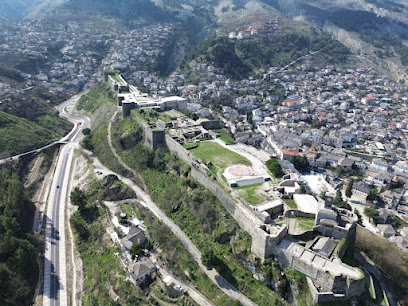
Gjirokastra Bazaar
Discover the charm of Gjirokastra Bazaar, where local crafts, delicious food, and rich culture create an unforgettable shopping experience in Albania.
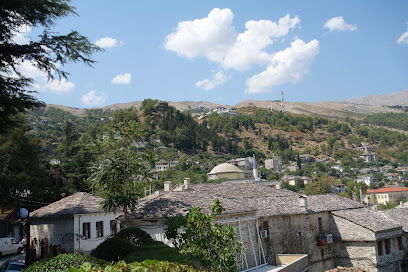
Submarine 105
Experience authentic Albanian cuisine at Submarine 105 in Gjirokastra – where tradition meets flavor in a cozy, historic setting.
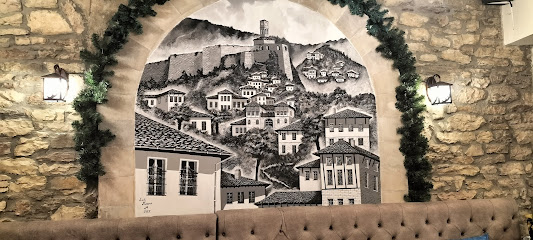
Skënduli House
Explore Skënduli House in Gjirokastër: A preserved Ottoman residence offering a glimpse into 18th-century Albanian life and architecture.
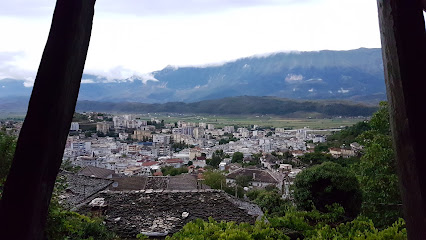
Zekate House
Explore the enchanting Zekate House in Gjirokaster, a historical landmark that embodies Albania's rich cultural heritage and stunning Ottoman architecture.
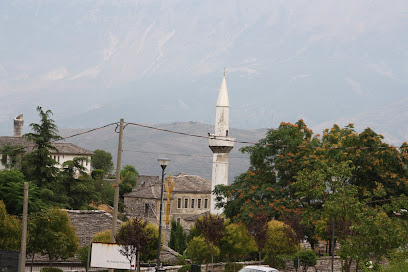
Gjirokastra Old Town
Explore Gjirokastra Old Town: a UNESCO gem with stone houses, a vibrant bazaar, and a historic castle, offering a unique Albanian experience.
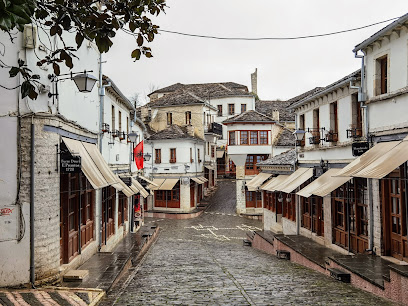
The cold war tunnel
Explore Gjirokastra's Cold War Tunnel: An underground glimpse into Albania's communist past and Enver Hoxha's paranoia. A chilling journey into history.
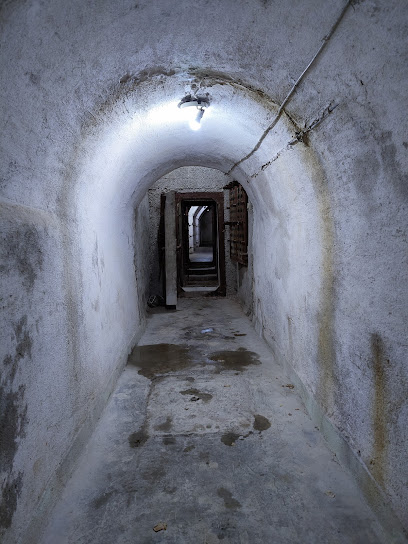
Ethnographic Museum
Explore traditional Albanian life in a beautifully preserved Ottoman-era home in the heart of Gjirokastër's historic district.
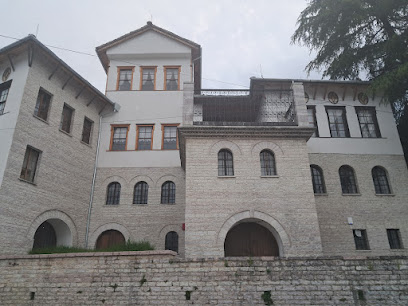
Ali Pasha Bridge
Explore the historic Ali Pasha Bridge in Gjirokaster, a remnant of Ottoman engineering offering scenic views and a glimpse into Albania's past.
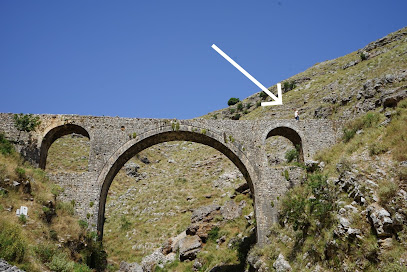
Ismail Kadare's House
Discover the rich literary heritage of Albania at Ismail Kadare's House, a historical museum in Gjirokaster dedicated to the life of the iconic author.
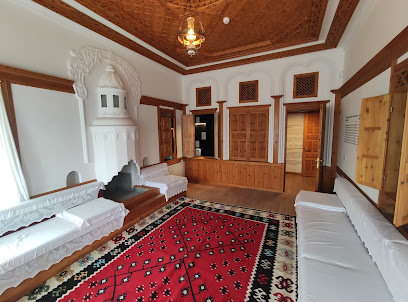
Qafa e Pazarit
Discover the historic charm of Qafa e Pazarit, a vital cultural landmark in Gjirokastra, Albania, where history and tradition come alive.
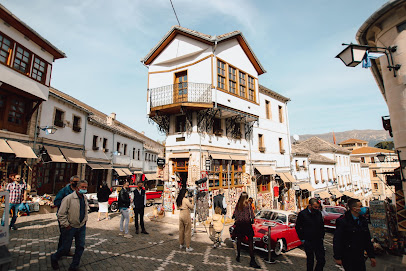
Gjirokastër Museum
Explore Albania's rich history and cultural traditions within the walls of Gjirokastër Castle, a UNESCO World Heritage Site.
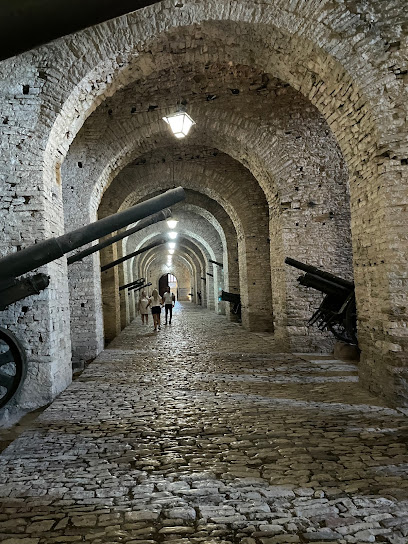
Archaeological Park of Antigonea
Discover Antigonea: An ancient city born of love, offering stunning ruins and panoramic views in the heart of the Drino Valley, near Gjirokastër.
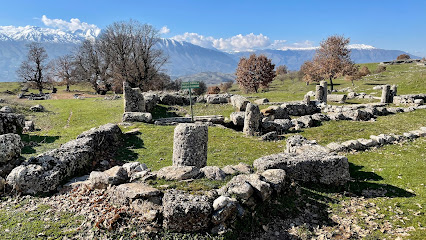
Gjirokastër Obelisk
Discover the Gjirokastër Obelisk, a historical landmark that offers stunning views and a rich narrative of Albania's past.
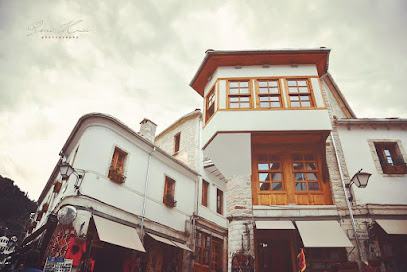
Kulla e Sahatit
Discover Gjirokaster's iconic Clock Tower: a historic landmark offering breathtaking views and a glimpse into Albania's rich heritage.
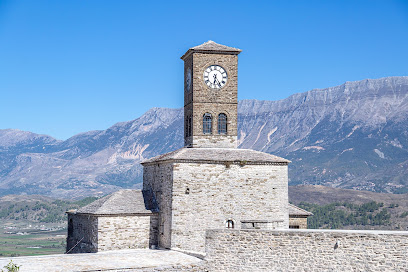
Unmissable attractions to see
Palermo Beach
Discover the serene beauty of Palermo Beach in Himarë, Albania: golden sands, crystal waters, and stunning coastal views await!
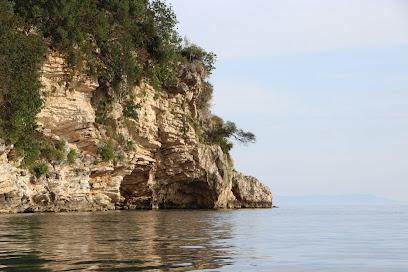
Qeparo Beach
Discover Qeparo Beach: a serene Albanian Riviera escape with stunning sunsets, turquoise waters, and a charming blend of history and natural beauty.
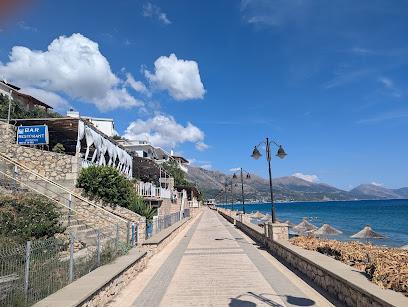
Lukova Beach
Discover the serene beauty of Lukova Beach, a hidden treasure on the Albanian Riviera, perfect for relaxation and adventure in pristine waters.
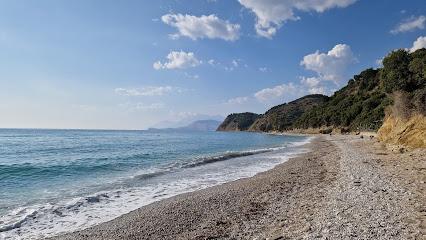
Mount Çika
Conquer Mount Çika: Breathtaking views from Albania's coastal giant, a haven for hikers and nature lovers along the stunning Albanian Riviera.
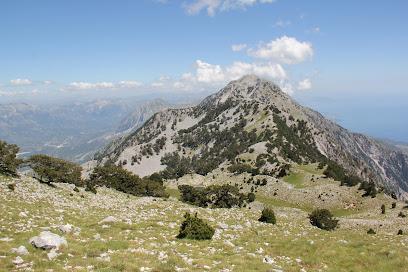
Monastery of Saint Nicholas
Discover serenity and history at the Monastery of Saint Nicholas in Delvinë, Albania. A spiritual landmark with stunning architecture and tranquil landscapes.
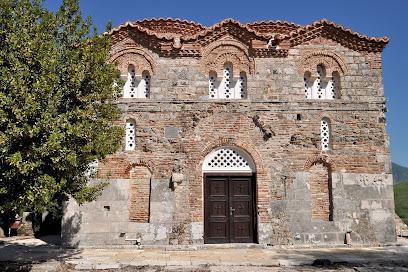
Qafa e Pazarit
Explore Qafa e Pazarit in Gjirokastra: a vibrant historical landmark with artisan shops, Ottoman architecture, and authentic Albanian culture.
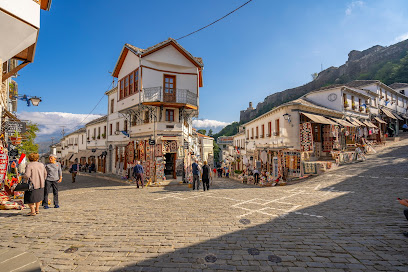
St Mary Church
Experience the rich history of St. Mary Church in Labovë e Poshtme, one of Albania's oldest Greek Orthodox churches, surrounded by stunning landscapes.
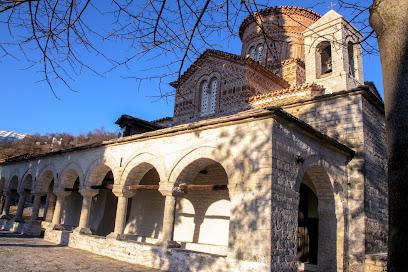
Kulla e Sahatit
Discover Gjirokastër's iconic Clock Tower: a historic landmark offering breathtaking views and a glimpse into Albania's rich heritage.
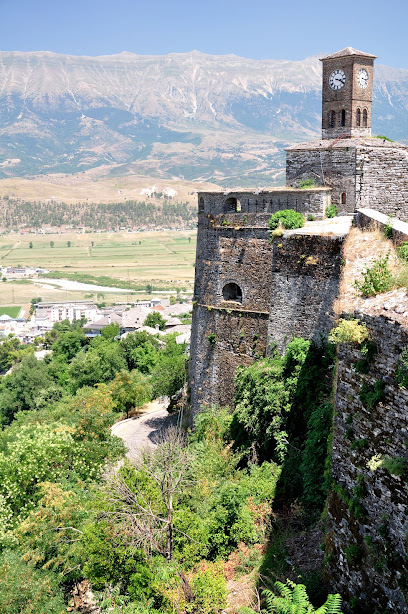
Muzeu i Armëve
Explore Albania's military history at Muzeu i Armëve in Gjirokastër Castle, showcasing weaponry and artifacts from independence to WWII.
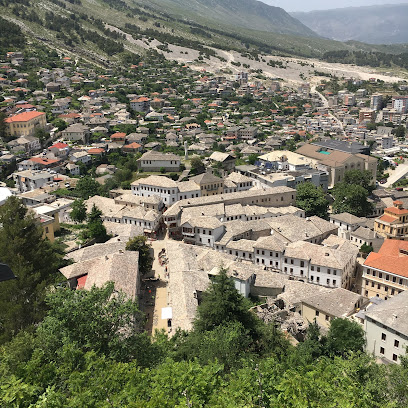
Krorëza Bay/ Boat trip & BBQ
Discover the pristine beauty of Krorëza Bay with boat tours from Sarandë. Swim in crystal waters, explore hidden beaches, and savor Albanian flavors.
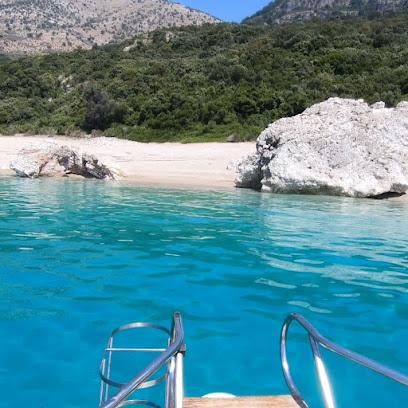
St. Paraskevi's Church
Explore the architectural beauty and serene atmosphere of St. Paraskevi's Church, a gem in Suhë, Albania, steeped in rich cultural heritage.
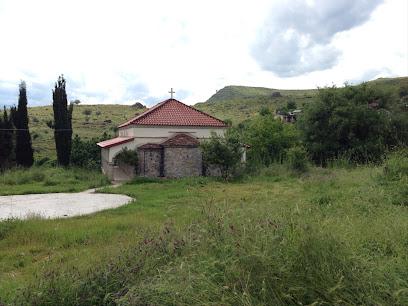
Church of the Intercessor
Discover the serene beauty and rich Orthodox heritage of the Church of the Intercessor in Labovë e Madhe, Albania.
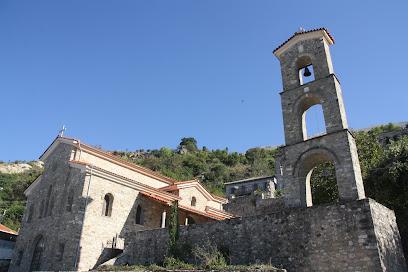
Dormition Church, Sopik
Discover the serene beauty and rich history of the Dormition Church, a cultural monument nestled in the Albanian village of Sopik.
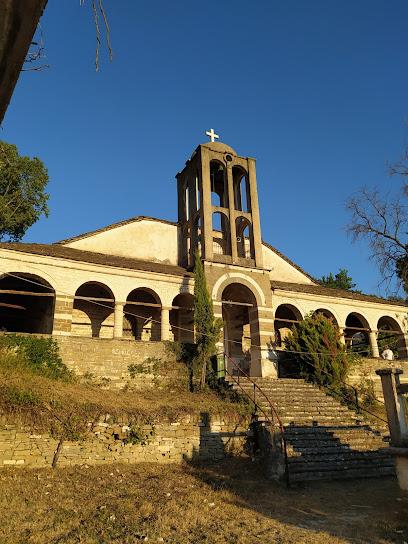
قلعة جيروكاسترا
Discover the enchanting Gjirokastër Fortress in Albania, a historic gem offering breathtaking views and deep cultural insights.

Nostagia Tunnel
Step back in time at Gjirokaster's Nostalgia Tunnel, an immersive museum showcasing the city's rich history and cultural heritage.
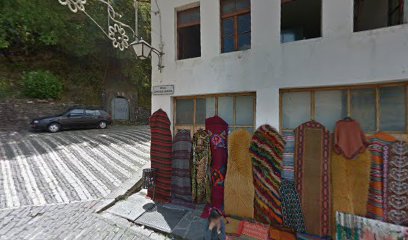
Essential places to dine
Taverna Tradicionale KARDHASHI
Savor traditional Albanian flavors at Taverna Tradicionale KARDHASHI in Gjirokastra - an authentic dining experience awaits.
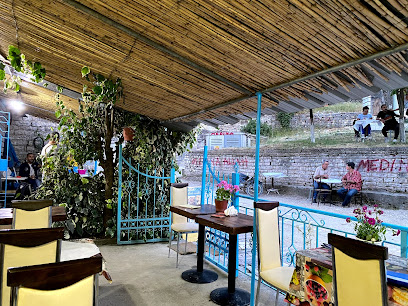
Restorant Tradicional Urat
Experience the heart of Albanian culinary tradition at Restorant Tradicional Urat in Gjirokaster, where every dish tells a story.
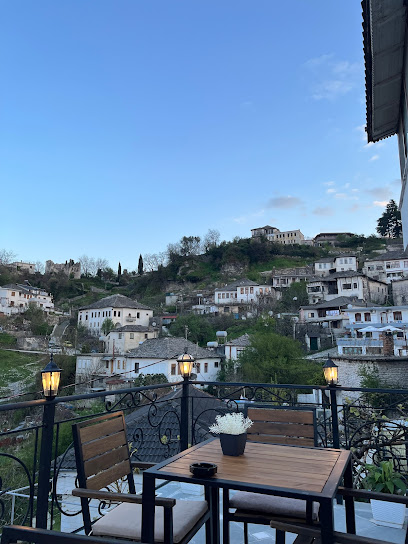
Vojsava Restaurant
Experience authentic Albanian cuisine in Gjirokaster at Vojsava Restaurant – where tradition meets flavor.
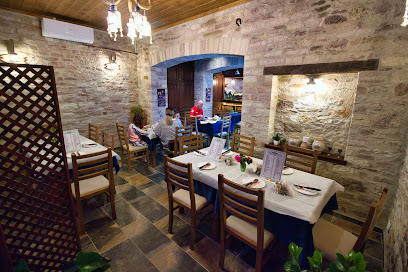
Taverna Lani
Experience authentic Albanian cuisine at Taverna Lani in Gjirokaster—where tradition meets flavor amidst stunning scenery.
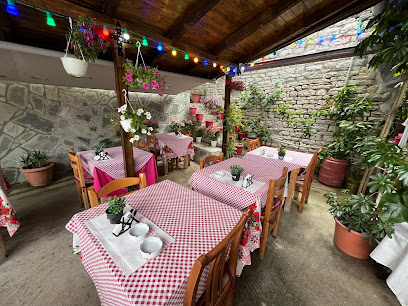
Te Kalaja Restaurant & Rooms
Discover the best of Albanian cuisine at Te Kalaja Restaurant & Rooms in Gjirokaster - a perfect blend of tradition and hospitality.
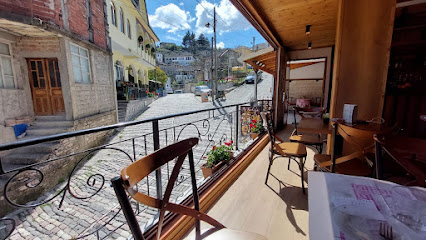
Grill House 13
Discover the flavors of Albania at Grill House 13 in Gjirokaster – a top barbecue restaurant offering delicious grilled dishes and a warm atmosphere.
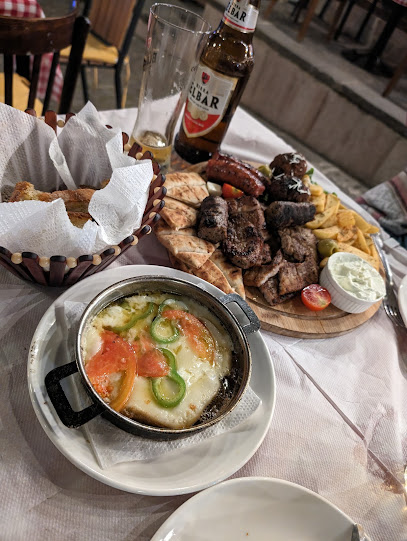
Restaurant Tradicional Odaja
Discover the flavors of Albania at Restaurant Tradicional Odaja in Gjirokaster - where tradition meets taste.
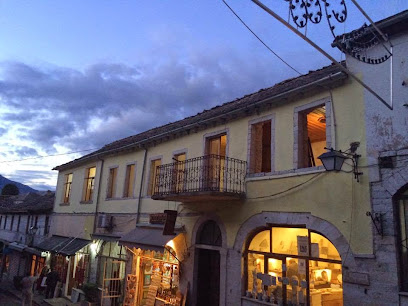
Corner of Bazaar
Discover authentic Albanian cuisine at Corner of Bazaar in Gjirokastra - where tradition meets flavor in every dish.
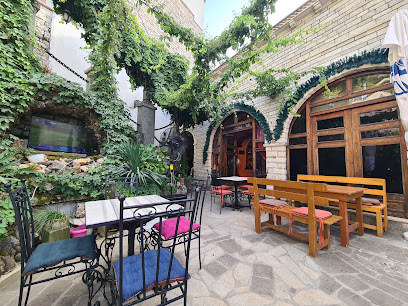
Checkin-Restaurant & Pizzeri
Experience authentic Albanian flavors at Checkin-Restaurant & Pizzeri in Gjirokaster - a must-visit culinary gem.
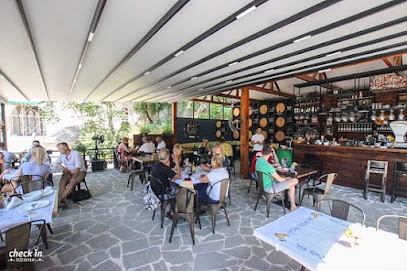
Edua Gjirokaster
Discover authentic Albanian flavors at Edua Gjirokaster, where health meets tradition in a cozy setting.
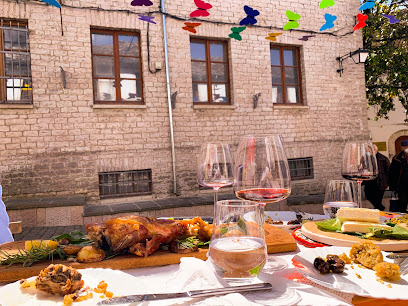
Kujtimi Restaurant
Experience authentic Albanian flavors at Kujtimi Restaurant in Gjirokaster – where tradition meets taste in an inviting setting.
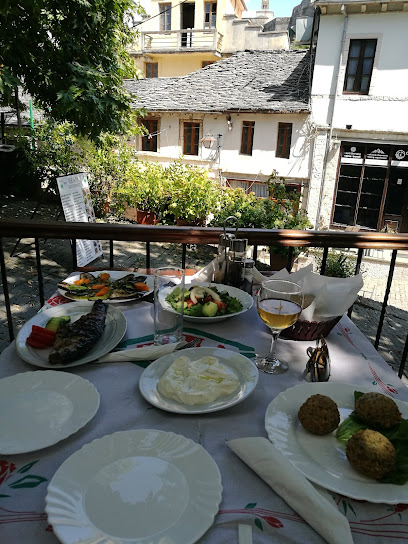
Submarine 105
Experience authentic Albanian cuisine at Submarine 105 in Gjirokaster – where tradition meets flavor in every dish.
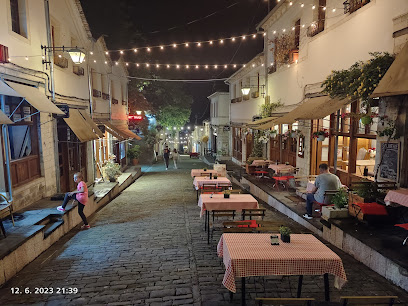
Taverna Kuka
Discover authentic Albanian flavors at Taverna Kuka in Gjirokaster - where tradition meets taste.
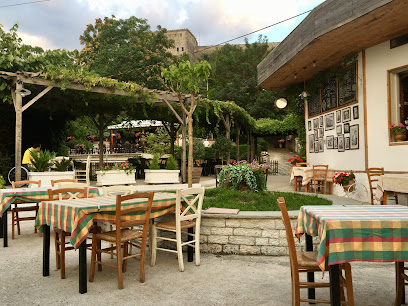
Taverna Labëria
Discover the authentic flavors of Albania at Taverna Labëria in Gjirokaster - where tradition meets taste.
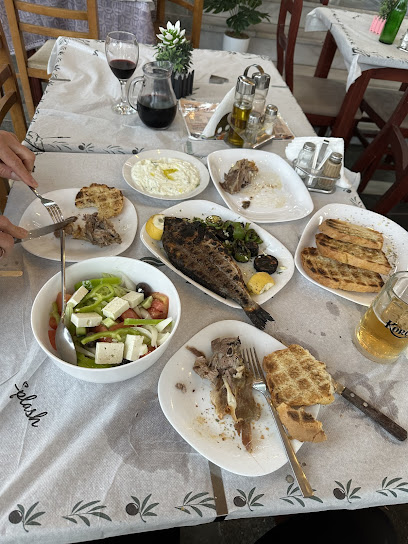
SIMPLE RESTAURANT
Discover authentic Albanian cuisine at Simple Restaurant in Gjirokaster—where flavor meets tradition in a charming setting.
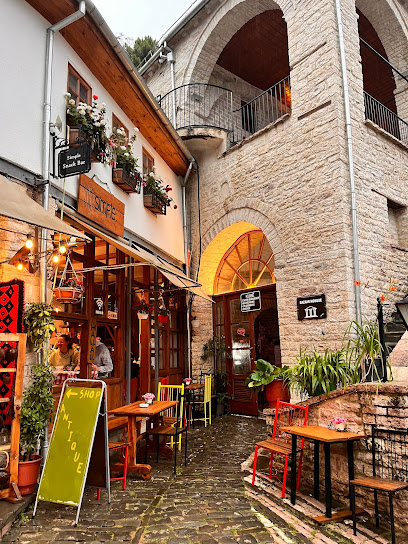
Markets, malls and hidden boutiques
Gjirokastra Bazaar
Discover the charm of Gjirokastra Bazaar, where local culture, vibrant crafts, and delicious food come together in a captivating marketplace.
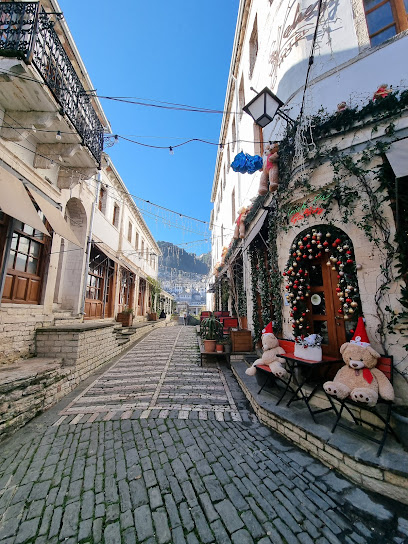
Edua Gjirokaster
Experience the best of Albanian cuisine at Edua Gjirokaster, where healthy dining meets vibrant local culture in a charming setting.
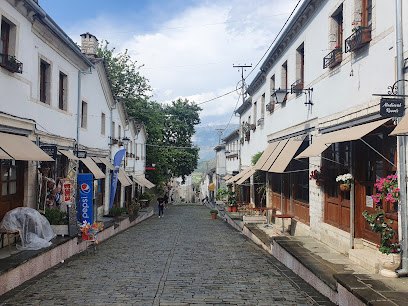
Zekate House
Explore Zekate House, an emblematic historical landmark in Gjirokaster, and immerse yourself in Albania's rich cultural heritage and stunning architecture.
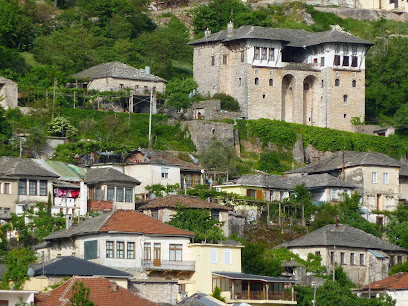
Ethnographic Museum
Explore the Ethnographic Museum in Gjirokastra, Albania, for a unique insight into the region's rich cultural heritage and history.
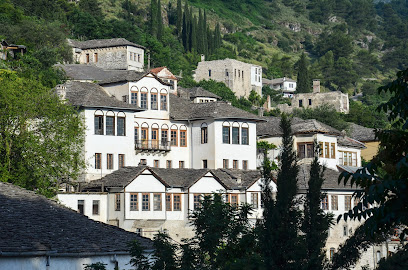
Caramel Cafe Lounge
Discover the delightful Caramel Cafe Lounge in Gjirokaster, where local flavor meets cozy ambiance in the heart of Albania.
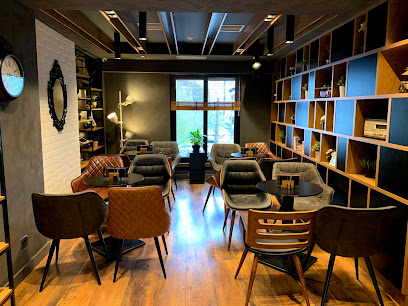
Ismail Kadare's House
Discover the literary world of Ismail Kadare in Gjirokastër, a historical museum that showcases Albania's rich cultural heritage and celebrated author.
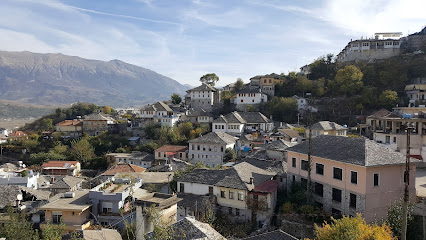
Antigonea Furrë Buke Pastiçeri
Experience the flavors of Albania at Antigonea Furrë Buke Pastiçeri, Gjirokaster's beloved bakery, offering traditional pastries and delightful treats.
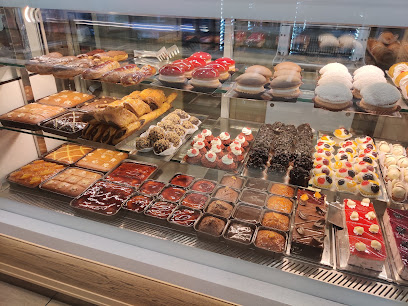
Qafa e Pazarit
Discover the rich heritage and vibrant atmosphere of Qafa e Pazarit, a historical landmark in Gjirokastra, Albania, filled with local shops and delicious cuisine.
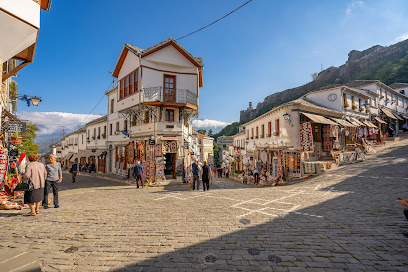
Antigonea 2000
Experience the rich flavors of Albanian baked goods at Antigonea 2000, Gjirokaster's beloved bakery, famed for its artisan pastries and breads.
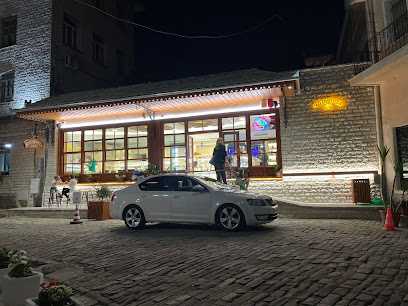
Gjirokastër Obelisk
Explore the Gjirokastër Obelisk, a captivating historical landmark showcasing Albania's rich cultural heritage amidst stunning landscapes.
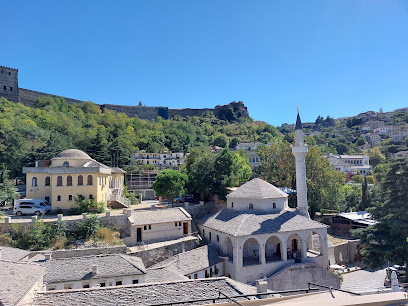
Kodra Sweet hill
Indulge in the freshest fruit-flavored ice cream at Kodra Sweet Hill, a must-visit destination in Gjirokastra, Albania.
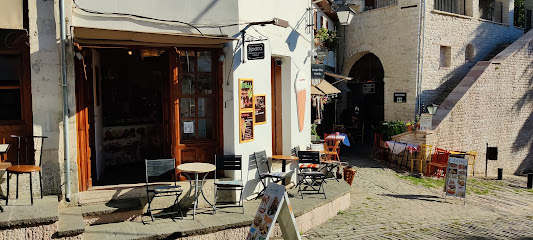
Experience Gjirokastra
Explore Gjirokastra, a UNESCO World Heritage Site, renowned for its stunning Ottoman architecture, rich culture, and breathtaking landscapes.
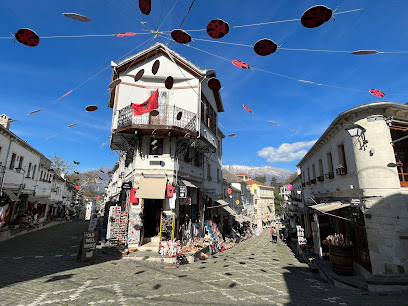
Elinikon
Experience the finest ice cream in Gjirokaster, Albania, at Elinikon, where delightful flavors and personal touches create a sweet escape.
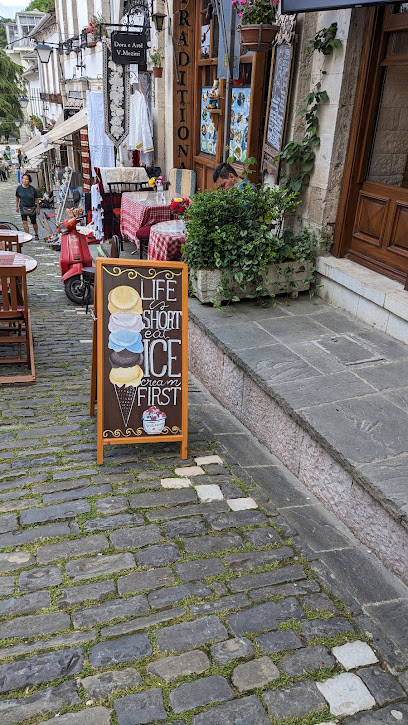
Market Ziaj
Explore Gjirokaster's Market Ziaj for an authentic taste of Albania with fresh produce and local specialties.
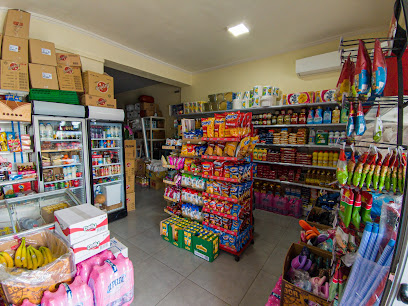
Alma Souvenir
Discover authentic Albanian gifts and handcrafted treasures at Alma Souvenir in the heart of Gjirokaster, perfect for every traveler.
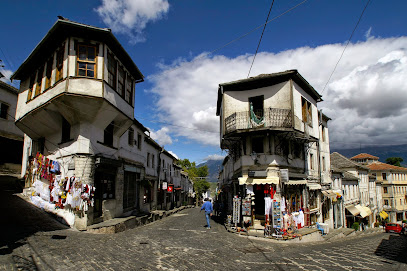
Essential bars & hidden hideouts
Hangover Cocktail Bar
Experience Gjirokaster's vibrant nightlife at Hangover Cocktail Bar, where expertly crafted cocktails meet a lively atmosphere.
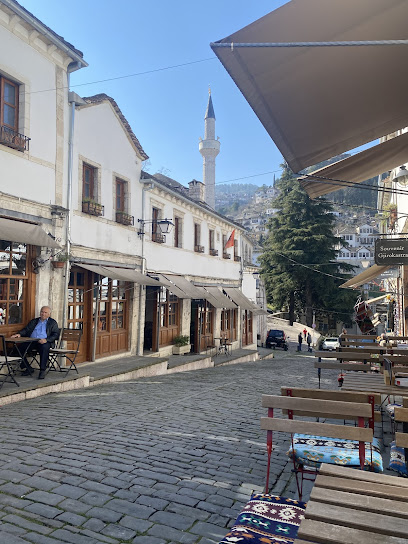
Komiteti Bar - Gjirokastër
Discover the lively Komiteti Bar in Gjirokastër, where traditional charm meets vibrant nightlife in a welcoming atmosphere.
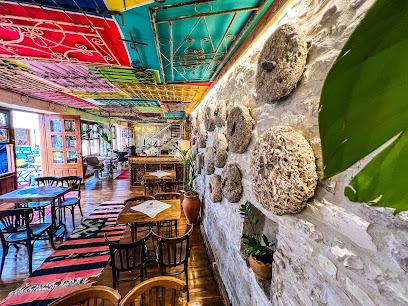
Bukowksi Bar Gjirokaster
Discover the vibrant nightlife at Bukowksi Bar in Gjirokaster, where unique decor meets an extensive drink menu for an unforgettable experience.
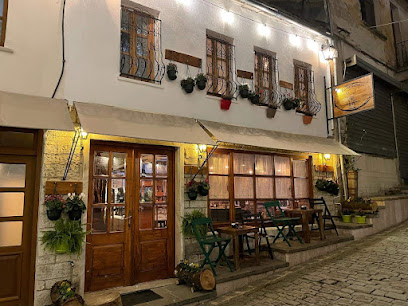
Gallery Irish Pub
Discover the vibrant spirit of Ireland at Gallery Irish Pub in Gjirokaster, where delightful drinks, live music, and warm hospitality await.
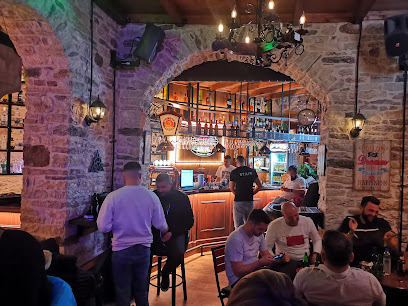
Bar Restorant Gjirokaster Rapi
Experience the essence of Albanian cuisine at Bar Restorant Gjirokaster Rapi, a culinary haven in the heart of Gjirokaster.

Babameto 2 - Cocktail Bar & Restaurant
Discover Babameto 2 in Gjirokaster, where vibrant cocktails meet delicious cuisine in a lively setting, perfect for all times of the day.
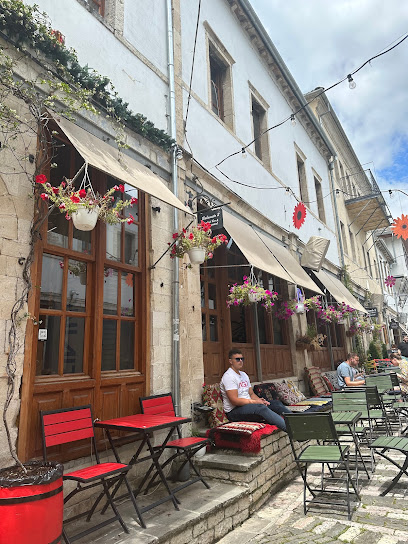
The Black Rose Pub
Experience the authentic taste of Albanian cuisine at The Black Rose Pub, Gjirokaster's top grill and bar destination.
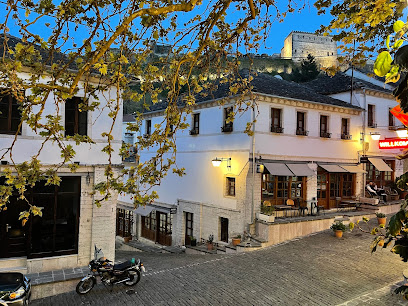
Te Raqi
Discover the authentic flavors of Albania at Te Raqi, a grill restaurant in Gjirokastra known for its warm hospitality and delicious cuisine.
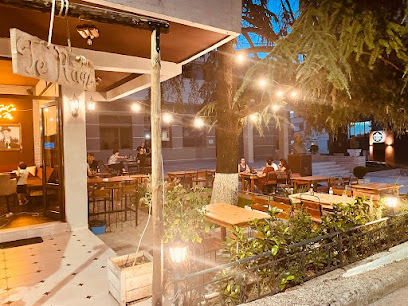
Old Town 13
Experience authentic Albanian flavors at Old Town 13, Gjirokaster's culinary gem offering delicious grilled dishes and a vibrant bar atmosphere.
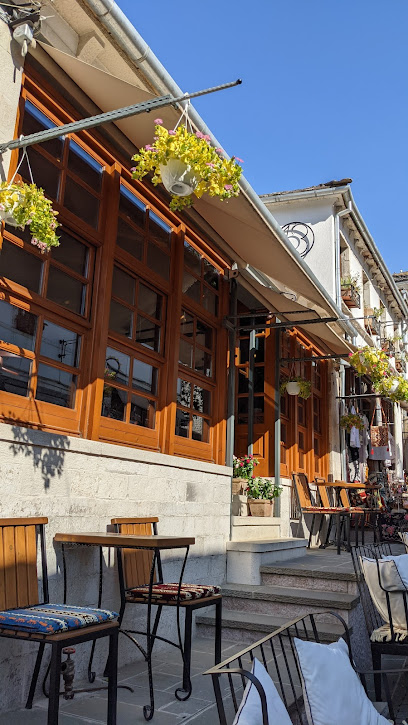
Classic Coffee Bar
Experience the rich flavors of Gjirokaster at Classic Coffee Bar, where every sip of coffee is a journey through Albanian culture.
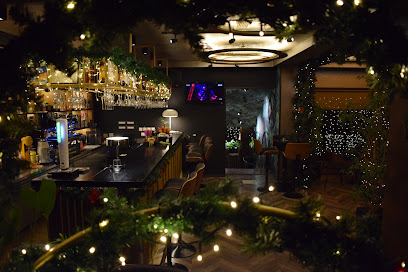
Grey Stone Bar
Experience Gjirokaster's nightlife at Grey Stone Bar, a vibrant spot for drinks, local culture, and unforgettable social moments.
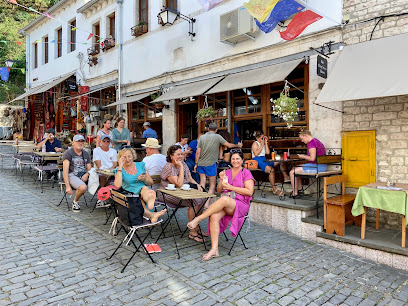
Bar Cafè Kotoni
Discover the vibrant atmosphere of Bar Cafè Kotoni, a must-visit bar in Gjirokaster for relaxing drinks and local charm.
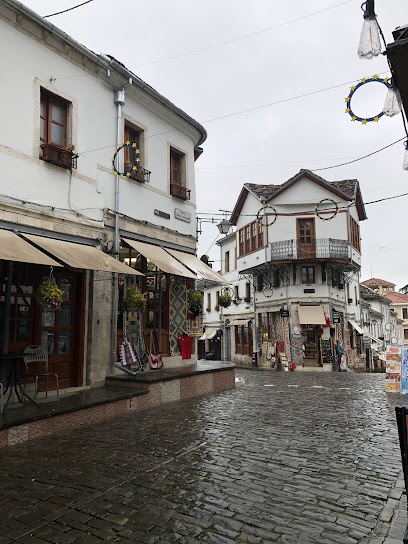
Bar Restaurant Viroi
Experience authentic Albanian cuisine at Bar Restaurant Viroi, a culinary gem in Gjirokaster, blending tradition with delightful flavors.
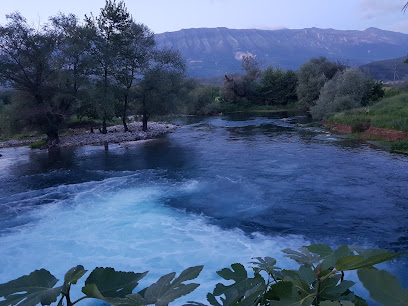
Bar
Discover the vibrant bar scene in Gjirokaster, where locals and tourists mingle over delightful drinks and unforgettable experiences.
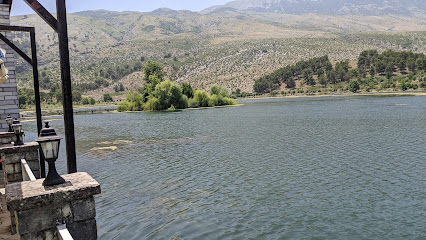
Local Phrases about Gjirokaster Region
-
- HelloPërshëndetje
[puhr-shuhn-deht-yeh] - GoodbyeMirupafshim
[mee-roo-pahf-shim] - YesPo
[poh] - NoJo
[yoh] - Please/You're welcomeJu lutem
[yoo loo-tehm] - Thank youFaleminderit
[fah-leh-meen-deh-reet] - Excuse me/SorryMë falni
[muh fahl-nih] - How are you?Si jeni?
[see yeh-nee] - Fine. And you?Mirë. Dhe ju?
[mee-ruh. dhe yoo] - Do you speak English?Flisni anglisht?
[flees-nee ahng-lee-sht] - I don't understandNuk kuptoj
[nook koopt-oy]
- HelloPërshëndetje
-
- I'd like to see the menu, pleaseDo të doja të shihja menynë, ju lutem
[doh tuh doh-yah tuh shee-yah meh-nyeh, yoo loo-tehm] - I don't eat meatUnë nuk ha mish
[ooh-neh nook hah meesh] - Cheers!Shëndeti!
[shuhn-deh-tee] - I would like to pay, pleaseDo të doja të paguaja, ju lutem
[doh tuh doh-yah tuh pah-gwah-yah, yoo loo-tehm]
- I'd like to see the menu, pleaseDo të doja të shihja menynë, ju lutem
-
- Help!Ndihmë!
[ndee-muh] - Go away!Largohu!
[lahr-goh-hoo] - Call the Police!Thirrni policinë!
[theer-nee poh-lee-tsee-nuh] - Call a doctor!Thirrni një doktor!
[theer-nee nyuh dohk-tohr] - I'm lostJam i humbur
[yahm ee hoom-boor] - I'm illJam i sëmurë
[yahm ee suh-moo-ruh]
- Help!Ndihmë!
-
- I'd like to buy...Do të doja të blej...
[doh tuh doh-yah tuh bleh] - I'm just lookingPo shikoj vetëm
[poh shee-koy veh-tehm] - How much is it?Sa kushton?
[sah kooshton] - That's too expensiveKjo është shumë e shtrenjtë
[kyoh uhsh-tuh shoo-muh eh shtrehn-jteh] - Can you lower the price?A mund ta ulni çmimin?
[ah moond tah ool-nee chmee-meen]
- I'd like to buy...Do të doja të blej...
-
- What time is it?Sa është ora?
[sah uhsh-tuh oh-rah] - It's one o'clockËshtë një ora
[uhsh-teh nyuh oh-rah] - Half past (10)Njëmbëdhjetë
[nyuhm-behd-yeh-teh] - MorningMëngjes
[muhn-gyes] - AfternoonPasdite
[pahs-dee-teh] - EveningMbrëmje
[uhm-bruhm-yeh] - YesterdayDje
[djeh] - TodaySot
[soht] - TomorrowNesër
[neh-sahr] - 1Një
[nyuh] - 2Dy
[doo] - 3Tre
[treh] - 4Katër
[ka-tuhr] - 5Pesë
[peh-suh] - 6Gjashtë
[gyahsht] - 7Shtatë
[sh-tah-tuh] - 8Tetë
[teh-tuh] - 9Nëntë
[nuhn-tuh] - 10Dhjetë
[th-yeh-teh]
- What time is it?Sa është ora?
-
- Where's a/the...?Ku është një ...?
[koo uhsh-tuh nyuh] - What's the address?Cila është adresa?
[chee-lah uhsh-tuh ah-dreh-sah] - Can you show me (on the map)?A mund të më tregoni (në hartë)?
[ah moond tuh muh troh-nyee (nuh hahr-teh)] - When's the next (bus)?Kur është autobusi i ardhshëm?
[koo uhsh-tuh ah-ow-boos-ee ee ahrd-shuhm] - A ticket (to ....)Një biletë (në ...)
[nyuh bee-leh-tuh (nuh)]
- Where's a/the...?Ku është një ...?
History of Gjirokaster Region
-
Gjirokaster, often known as the 'City of Stone', has roots tracing back to the 4th century BC. Initially a fortified settlement, it was known as Argjiro. Its strategic location in the Drinos Valley made it a significant point for trade and defense throughout ancient times.
-
During the Byzantine period, Gjirokaster was a crucial administrative and military center. The construction of the Gjirokaster Castle, which dominates the skyline even today, began in the 12th century. This fortress served as a defensive stronghold against various invading forces over the centuries.
-
The Ottomans captured Gjirokaster in the 15th century, and it remained under Ottoman control for nearly 500 years. This era significantly shaped the city's architectural and cultural landscape. The traditional Ottoman houses, with their unique stone construction and elaborate woodwork, are a testament to this period.
-
Gjirokaster is notably the birthplace of Enver Hoxha, the former communist leader of Albania. His family home has been preserved as a museum, offering insights into his life and the period of communist rule in Albania. This adds a layer of modern historical significance to the city.
-
In 2005, UNESCO designated Gjirokaster as a World Heritage Site, recognizing its well-preserved Ottoman architecture and its historical significance. This status has helped protect the city's cultural heritage and attract visitors from around the globe.
-
Held every five years in the courtyard of Gjirokaster Castle, this festival is a vibrant celebration of Albania's rich cultural heritage. It features traditional music, dance, and costumes from all over the country, offering a deep dive into the nation's folk traditions.
Gjirokaster Region Essentials
-
Gjirokaster Region is located in southern Albania. The nearest international airport is Tirana International Airport, about 230 kilometers away. From Tirana, you can take a bus or hire a taxi to Gjirokaster. The bus journey typically takes around 4 to 5 hours. Alternatively, you can rent a car for a more flexible travel experience. There are also direct buses from other major cities in Albania, such as Saranda and Vlora, which are closer and reduce travel time.
-
Gjirokaster is a compact city with most attractions within walking distance. For exploring the wider region, local buses and taxis are available and reasonably priced. Car rentals are also an option for those who prefer to explore at their own pace. Keep in mind that some rural roads can be challenging to navigate, so a car with good ground clearance is advisable.
-
The official currency in Albania is the Albanian Lek (ALL). Credit cards are accepted in larger hotels and restaurants, but cash is still king in smaller establishments and rural areas. ATMs are available in Gjirokaster, but it is a good idea to carry sufficient cash for day-to-day expenses. Currency exchange services are also available in the city.
-
Gjirokaster is generally a safe destination for tourists. Standard precautions should be taken, such as avoiding walking alone at night in unfamiliar areas and keeping an eye on your belongings in crowded places. There are no specific high-crime areas targeting tourists, but it is always wise to stay vigilant and aware of your surroundings.
-
In case of an emergency, dial 112 for immediate assistance. Gjirokaster has a local police station and medical facilities, including a hospital and pharmacies. It is recommended to have travel insurance that covers medical emergencies. For minor health issues, over-the-counter medications can be purchased at local pharmacies.
-
Fashion: Do dress modestly, especially when visiting religious sites. Avoid wearing overly revealing clothing. Religion: Do respect local customs and traditions. Remove your shoes when entering religious buildings and cover your head if required. Public Transport: Do be respectful and offer your seat to elderly passengers. Don't eat or drink on public transport. Greetings: Do greet people with a handshake or a slight bow of the head. Eating & Drinking: Do try local delicacies and accept food offerings graciously. Don't refuse hospitality, as it is considered impolite.
-
To experience Gjirokaster Region like a local, visit the local markets where you can buy fresh produce and traditional Albanian goods. Engage with locals, who are often friendly and willing to share stories about the area's history and culture. Don't miss visiting the Gjirokaster Castle, which offers stunning views of the city and surrounding landscape. For an authentic experience, try to attend local festivals and events, where you can enjoy traditional music, dance, and food.
Trending Landmarks in Gjirokaster Region
Nearby Cities to Gjirokaster Region
-
Things To Do in Saranda
-
Things To Do in Tepelenë
-
Things To Do in Corfu
-
Things To Do in Vlorë
-
Things To Do in Berat
-
Things To Do in Ioannina
-
Things To Do in Patos
-
Things To Do in Pogradec
-
Things To Do in Kavajë
-
Things To Do in Meteora
-
Things To Do in Tirana
-
Things To Do in Durres
-
Things To Do in Krujë
-
Things To Do in Lezhë
-
Things To Do in Larissa










